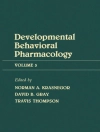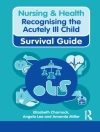Good neurosurgical practice is based not only on evidence, skills, and modern equipment, but also on good values. This book is the first to discuss specifically the ethical issues that arise during the daily practice of neurosurgery. It is divided into three parts addressing patients’ rights, ethical issues relating to the working environment, and wider societal aspects such as dealings of neurosurgeons with the legal system, the media, and companies. The authors are well-established neurosurgeons who present the ethical problems that they have encountered during their careers and explain what they have learned in confronting these problems. In all, more than 50 neurosurgical cases drawn from real life are reported and discussed from an ethical point of view. This book will be especially informative for young neurosurgeons and will provide all who work in this very special field with a road map on how to avoid violations of medical ethics in neurosurgical practice.
قائمة المحتويات
Introduction.- Ethics in Medicine and Surgery – General View. Patient`s Rights: Patient`s Rights – Overview.- Patient´s Rights to Refuse Treatment.- Patient Right to Privacy and Confidentiality.- Informed Consent.- Patient`s Family`s Rights.- Children and Neonates.- Patients with Terminal Diseases.- Complications and Errors. Work Environment: Neurosurgeon`s Rights and Duties.- Priority Setting.- Neuroethics.- Workplace Ethics. Society: Ethics of Performing Surgery/Using Technology for the First Time.- Research Ethics.- Training in Neurosurgery – the Right of Patients and of Trainees.- Conflict of Interest/Industry-Surgeon Relationship.- Malpractice and Court Cases.- Media and Neurosurgery.
عن المؤلف
Ahmed Ammar, M.B.Ch.B., D.M.Sc., FACS, FICS, is Professor and Consultant Neurosurgeon at Dammam University, Dammam, Saudi Arabia and Visiting Professor in the Departments of Neurosurgery at the University of Virginia, USA and the University of Shinshu, Matsumoto, Japan. He is a vastly experienced neurosurgeon who has performed more than 5000 procedures, primarily in spinal surgery, pediatric neurosurgery, and functional neurosurgery. Dr. Ammar has served as a member of the Ethics Committee of the World Association of Neurological Surgeons and as Chair of the Ethics Committee of the World Association of Disaster and Emergency Medicine. He has also been a member of the Education Committee of the International Pediatric Neurosurgical Society and a board member of the Saudi Association for Neurological Surgeons and the Gulf Neurosurgical Societies. Dr. Ammar has published more than 50 papers in peer-reviewed journals as well as several books, and is a member of the International Advisory Board of the Asian Journal of Neurosurgery.
Mark Aaron Bernstein, BSc, MD, FRCSC (Neurosurgery), MHSc (Bioethics), currently works as a scientist at the Toronto Western Hospital/University Health Network, Toronto, Ontario, Canada. He has been a staff member at Toronto Western Hospital and also Hillcrest Hospital, Toronto, for more than 25 years, and in 1996 was appointed Professor in the Department of Surgery at the University of Toronto. Dr. Bernstein has had a distinguished career that has included service on numerous committees of medical and scientific bodies and extensive research activity, including on ethical and social issues relating to neurosurgery. He has been Associate Director of the Arthur and Sonia Labatt Brain Tumour Research Centre since 1999. In 2006 Dr. Bernstein was invited to deliver the Theodore Kurze lecture to the American Association of Neurological Surgeons and in 2011 he was appointed as the inaugural Greg Wilkins-Barrick Chair in International Surgery at the University Health Network, Toronto. Dr. Bernstein serves on the editorial boards of Brain Tumor Pathology, Journal of Neuro-Oncology, Neurosurgery Quarterly, and National Review of Medicine. He is the author of more than 275 articles in peer-reviewed journals.












